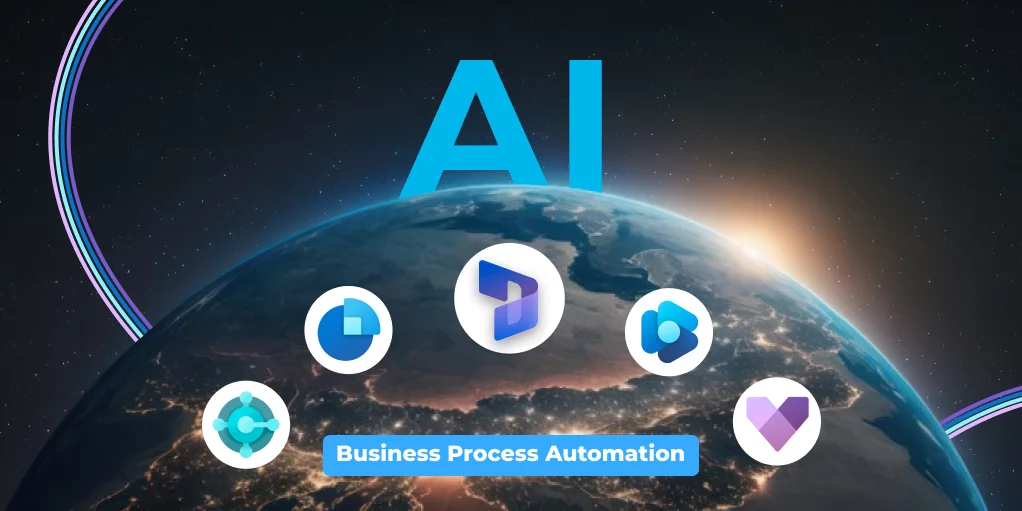In the fast-evolving world of technology, artificial intelligence (AI) continues to disrupt and transform industries, and 2025 is no exception. One of the most significant areas where AI has made an impact is business process automation (BPA). By streamlining workflows, improving efficiency, and reducing operational costs, AI is helping businesses stay competitive in a digitally-driven landscape.
This article explores how AI is reshaping business process automation, the key benefits it offers, and practical strategies for leveraging AI to optimize operations. Whether you’re running a small business or managing a large enterprise, understanding these trends is critical for thriving in the modern business environment.
The Role of AI in Business Process Automation
AI is not just a futuristic concept; it’s an essential tool for businesses today. Business process automation focuses on automating repetitive, manual tasks to free up resources and improve productivity. When AI is integrated into BPA, it takes automation to a whole new level by adding intelligent decision-making and adaptability.
1. Intelligent Task Automation
AI-powered bots can handle complex tasks that go beyond simple rule-based processes. From processing invoices to analyzing large data sets, intelligent automation minimizes errors and ensures tasks are completed faster.
2. Enhancing Workflow Efficiency
AI algorithms can analyze workflows and identify bottlenecks, enabling businesses to optimize their processes. This leads to smoother operations and improved employee productivity.
3. Real-Time Decision-Making
Unlike traditional automation tools, AI systems use machine learning to make real-time decisions. For example, AI can analyze customer interactions and recommend personalized solutions instantly.
For more insights into AI and automation, check out AI and Automation and AI in Business Operations.
Benefits of AI-Powered Business Process Automation
1. Cost Savings
By automating routine tasks, businesses can significantly cut operational costs. AI reduces the need for manual intervention, allowing companies to allocate resources more efficiently.
2. Improved Accuracy
AI minimizes human error in processes like data entry, inventory management, and compliance monitoring. This ensures consistent and reliable outcomes.
3. Scalability
AI-driven automation tools are highly scalable, making them ideal for businesses of all sizes. Whether you’re a startup or an established company, you can adapt AI solutions to meet your growing needs.
4. Enhanced Customer Experiences
AI-powered chatbots, virtual assistants, and personalized recommendations create seamless customer experiences. This boosts customer satisfaction and loyalty.
5. Better Decision-Making
AI tools analyze vast amounts of data and provide actionable insights, enabling businesses to make informed decisions. This is especially critical in competitive markets where quick and accurate decision-making is essential.

Applications of AI in Business Process Automation
1. Customer Service Automation
AI-driven chatbots and virtual assistants are transforming customer service. They handle inquiries, resolve complaints, and even process orders 24/7, ensuring customer satisfaction.
2. Sales and Marketing Automation
AI tools like predictive analytics and programmatic advertising help businesses target the right audience and optimize marketing campaigns. Learn more about effective strategies at Content Marketing and SEO Strategies.
3. Financial Process Automation
AI automates tasks like invoice processing, fraud detection, and financial reporting. This improves accuracy and saves time for finance teams.
4. Supply Chain and Logistics
AI enhances supply chain management by predicting demand, optimizing inventory levels, and streamlining delivery processes. This leads to cost savings and better customer service.
5. Recruitment and HR Management
AI tools simplify recruitment by screening resumes, scheduling interviews, and even conducting initial assessments. They also assist HR teams with employee engagement and performance analysis.
Explore more innovative business ideas at Startup Ideas and Small Business Ideas.
How AI is Shaping Industries Through BPA
1. E-commerce
AI-powered recommendation engines and chatbots are revolutionizing the e-commerce sector. Personalized shopping experiences and automated customer support are now industry standards. Dive deeper into this at E-Commerce Businesses and E-Commerce Innovations.
2. Healthcare
From automating patient records to assisting in diagnostics, AI is enhancing efficiency in healthcare systems. It’s also playing a key role in drug discovery and telemedicine.
3. Education
AI-driven platforms like virtual tutors and automated grading systems are transforming education. These tools save time for educators and create personalized learning experiences. Learn more at Educational Platforms.
4. Retail
Retailers use AI for inventory management, dynamic pricing, and personalized marketing campaigns. This ensures smoother operations and higher customer satisfaction.
5. Manufacturing
AI-powered robots and predictive maintenance systems are making manufacturing processes more efficient and less prone to downtime.
Challenges of Implementing AI in Business Automation
Despite its benefits, integrating AI into business processes comes with challenges:
1. High Implementation Costs
Developing and deploying AI solutions can be expensive, especially for small businesses.
2. Data Privacy Concerns
With the increasing use of AI, businesses must ensure they comply with data protection regulations to maintain customer trust.
3. Workforce Resistance
Employees may resist AI adoption due to fear of job displacement. Businesses need to focus on upskilling their workforce to address these concerns.
Future of AI and Business Process Automation
1. Hyper-Automation
Hyper-automation involves combining AI with other technologies like robotic process automation (RPA) to automate end-to-end processes. This trend will dominate in 2025.
2. AI-Driven Predictive Analytics
AI-powered analytics will become a standard tool for forecasting and decision-making across industries.
3. Seamless Integration with IoT
The integration of AI and the Internet of Things (IoT) will enable businesses to automate processes in real time.
Stay updated on industry trends with Future Industry Insights and Tech-Driven Trends.
How to Get Started with AI-Powered BPA
- Identify Automation Opportunities: Analyze your workflows to find repetitive tasks that can be automated.
- Choose the Right Tools: Select AI tools that align with your business needs.
- Train Your Team: Upskill your employees to work alongside AI systems.
- Monitor and Optimize: Continuously evaluate the performance of AI solutions to ensure they deliver desired outcomes.
For more advice on implementing AI, visit AI Technologies Tools and Digital Services.
Conclusion
AI is revolutionizing business process automation in 2025, offering unparalleled opportunities for growth and efficiency. From customer service to financial management, AI-powered tools are transforming how businesses operate. By embracing these technologies and staying ahead of industry trends, businesses can position themselves for long-term success.
For additional insights into leveraging AI and other innovative business ideas, check out Blog and Online Business.

